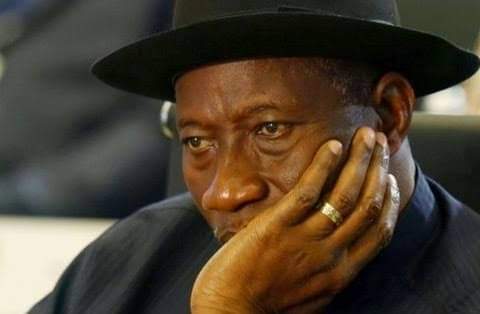
While supporters argue that Jonathan remains a stabilising figure in the nation’s democratic experience, constitutional lawyers have raised questions about his eligibility to contest.
Speculation over the possible return of former President Goodluck Jonathan in the 2027 elections has continued to stir debate across Nigeria’s political space.
While supporters argue that Jonathan remains a stabilising figure in the nation’s democratic experience, constitutional lawyers have raised questions about his eligibility to contest.
Human rights lawyer and former Chairman of the National Human Rights Commission, Prof. Chidi Odinkalu, has joined those warning that any attempt by Jonathan to contest would collapse under judicial scrutiny.
In an opinion piece, Odinkalu made a case that the former president cannot legally or politically succeed with a 2027 presidential bid.
Odinkalu’s argument hinges on the 1999 Constitution (as amended), which places a limit on the number of times a person can be sworn in as president. He drew attention to Section 137(3), which directly affects Jonathan’s situation.
Odinkalu said, “The ambitions of President Jonathan in 2027 will rest on two different provisions of the 1999 constitution. Under section 137(1)(a), a person is disqualified from running for Nigeria’s presidency if ‘he has been elected to such office at any two previous elections.’
“This provision was there when President Jonathan ran unsuccessfully for a second term in 2015. At the time, there was a considerable amount of murmuring about his ineligibility to run, having assumed office for the last year following the death of Umaru Yar’Adua in May 2010.”
Odinkalu noted that having been on the presidential ticket with Yar’Adua in 2007 and again at the top of the ticket in 2011, “it was arguable in 2015 that GEJ had previously ‘been elected to such office’ twice and was therefore barred from running again.”
He said, “However, it was beyond improbable that a judge could be found at the time to rely on that argument to preclude a sitting president from running.
“In 2027, however, two things will be different. First, two years after GEJ left office, in 2017, the fourth alteration to the Constitution (no. 16), introduced section 137(3) which provides that: ‘A person who was sworn-in as President to complete the term for which another person was elected as President shall not be elected to such office for more than a single term.’
“This will put GEJ’s eligibility directly in issue. The question will be simple: having inherited the presidency from President Yar’Adua and served a full elected term from 2011 to 2015, is he still eligible to run again in 2027?
“On that question, the judges will not be apolitical. In litigation, this will be presented as a legal question. In reality, it is a political one and this is where the second issue arises.
“Where in 2015, GEJ enjoyed the favours of judicial complaisance and the presumption against judicial defection from incumbents, that presumption would count against him in 2027.
“And where in 2015, no judge could be found to bump him from the race under cover of judicial ceremony, there will be no end to the number of judges happy to oblige the incumbent in 2027 with precisely that kind of judicial cover for a political hit job.”
This provision was introduced after Jonathan’s time in office had already begun. However, Odinkalu argued that its effect on his eligibility remains binding.
He was emphatic about the inevitability of a legal blockade, noting that Jonathan won’t survive judicial scrutiny in 2027 and that his candidacy is liable to judicial veto.
“At that point of no return, an innocuous looking legal challenge will materialize questioning GEJ’s eligibility to run under the constitution. They will sue him, his party, and Independent National Electoral Commission (INEC) and will ask the courts to restrain INEC from recognizing him as a candidate in the election,” he said.
“The suit will slow walk its way to a decision. Then, suddenly, around the week before the vote, judgment will come down restraining the party from presenting GEJ as a candidate and restraining the INEC from having him on the ballot.
“Any serious threat to the incumbent’s ambitions will have been judicially squelched. The script is so easily authored, the ruling party must be licking its chops at the idea of a Jonathan candidacy. There can be no better political gift for the incumbent president and his ruling party.”
Jonathan’s Political Journey
Jonathan, who rose from deputy governor of Bayelsa State in 1999 to become Nigeria’s president in 2010 following the death of President Umaru Musa Yar’Adua, served out the remainder of Yar’Adua’s tenure before winning election in 2011.
His defeat to Muhammadu Buhari in 2015 marked the first time an incumbent president lost power in Nigeria, a concession that earned him international respect.
That legacy, Odinkalu suggested, is what is now at stake.
Odinkalu said, “GEJ should know that those importuning him for a tilt at the presidency in 2027 are clutching at withered straws.
“The judicial landscape he left in 2015 is radically different from what he will confront should he choose to throw his hat into the ring 12 years later in 2027.”
Leave a Reply